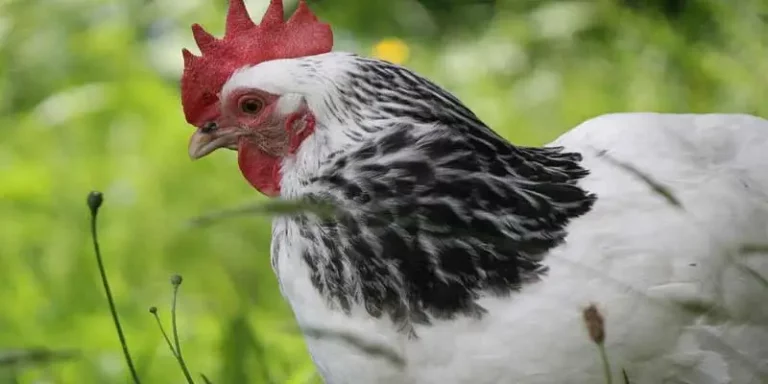A chicken is an animal that provides meat, eggs, and entertainment. But, sadly, it can sometimes be the victim of a predator. When this happens, owners may find themselves wondering if the feathers will grow back. While there are different situations that can lead to the loss of feathers, there are steps you can take to help your chickens regrow their plumage as quickly as possible.
In this article, we will find out whether chicken feathers will grow back after an attack. Also, other ways that you can help them regrow it quickly.
Will Chicken Feathers Grow Back After Attack?
In general, chicken feathers will grow back after an attack. However, the growth process may take longer than you expect.
The time it takes for a chicken to regrow its feathers depends on several factors. The most crucial factor is the type of feather that was lost.
For example, if only a few feathers were plucked out, they will typically start growing back within a month or two. However, suppose you have experienced an intense attack where large portions of your chickens’ bodies have been injured and bleeding profusely. In that case, it might take longer for your hens to recover their plumage and begin laying eggs again.
How Long Does It Take for Chicken Feathers to Grow Back After Injury?
Chicken feathers are made of keratin, a protein that is also found in human fingernails and hair. Chicken feathers grow back at a rate of about one inch per month. This means it can take several months for the feathers to grow back after an injury or plucking.
The time it takes for a chicken’s feathers to regrow depends on the severity of the injury and whether they have been completely plucked out or just partially removed. If only a portion of the feather is missing, it will often regrow within three weeks. If a large portion of the feather has been removed, however, it can take two to three months for new growth to begin.
Why Do Chickens Lose Their Feathers When Attacked?
Chickens are a favorite target of many predators, from hawks to foxes and even raccoons. When a chicken is attacked, it will often drop its feathers as it tries to escape. It’s important for you to understand why this happens so that you can protect your flock from further harm.
When a chicken is stressed or frightened, it will begin to sweat. This causes the bird’s body temperature to rise and its feathers to stick together. In addition, the bird’s body releases an oil called preen gland oil that helps waterproof and protect its skin. The combination of these two processes can cause chickens to lose their feathers when they are attacked.
If you see one or more of your chickens with missing feathers, it’s important that you take steps immediately to ensure their safety. If one or more members of your flock have been attacked by another animal, put them in the coop and lock it until they can be checked out by an avian veterinarian.
What Helps Chickens’ Feathers Grow Back?
Chickens will naturally grow back their feathers after being attacked. However, it will take longer than usual for it to regrow.
There are a few things that help chickens’ feathers grow back:
- Make sure they’re getting enough calcium and protein in their diet (like eggshells or mealworms). If they’re not getting enough of these nutrients, their bodies won’t be able to produce new feathers as quickly as they should.
- Keep them cool and comfortable — too much heat or stress can cause them to lose their feathers more quickly than normal. The same goes for cold weather — chickens need extra protection from the elements during the winter months (like a blanket or a warm coop).
- Make sure there aren’t any injuries on your chicken’s body that may be causing pain (like scratches from another chicken).
Be Aware of Molting
When you see a chicken lose their feathers, it may not be due to an attack. Chickens can lose their feather due to molting. Molt is a natural process in which chickens lose and replace their feathers. It can be triggered by changes in day length, temperature, or availability of food.
The first sign of molting is the appearance of pinfeathers, which are the very small, fine feathers that grow in place of the longer ones that were shed. Pinfeathers resemble hairs, and they will appear on your chicken’s breast, back and wings first. A few days later the older feathers will fall out and be replaced by new ones.
Molting usually takes about 8 weeks for chickens with standard-sized feathers. Chickens with large feathers take a little longer, while chickens with small feathers may complete a molt within just a few weeks.
In Summary
If your chicken has lost feathers due to an attack, you may be wondering if the feathers will grow back. Feathers will grow back, but it will take some time. The length of time it takes for your chicken’s feathers to grow back will depend on the breed, how old your chicken is, and other factors like the weather or their diet.


